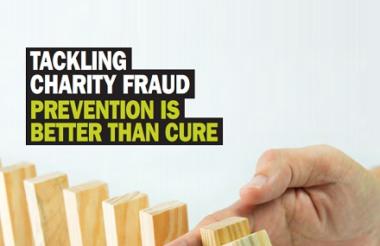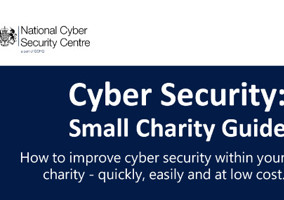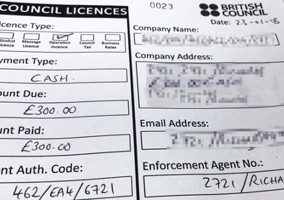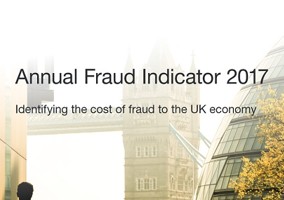The Charity Commission and the Fraud Advisory Panel have published free guidance for trustees and senior managers of charities to help them tackle fraud.
Their report, Tackling charity fraud: prevention is better than cure, draws from the national charity fraud conference and charity fraud awareness week, which ran in October last year.
It includes guidance on tackling cybercrime, how to prevent common frauds, detecting fraud and responding to fraud.
The introduction to the report says: “Ultimately, every charity should develop a comprehensive, joined-up understanding of the fraud-related aspects of its operating environment.
“Does it specialise in high-risk international locations, for example, or handle lots of cash? And what about the wider cultures, procedures, practices and vulnerabilities of its beneficiaries, contractors, suppliers, funders, employees and partners?
“No charity is an island. Third-party weaknesses can create significant knock-on fraud vulnerabilities for the charity itself. For vulnerabilities of this kind to be properly addressed, they first have to be recognised.”
The Fraud Advisory Panel has published a range of other new resources on their website, including a checklist for charity professionals and good practice case studies from Macmillan, Saga Charitable Trust and SAFERjobs.
Macmillan recovered nearly £170,000
The Macmillan case study says the charity managed to recover missing donations worth £168,788 between 2015 and 2017 after creating a new counter-fraud manager role.
It says the manager spent two years designing the charity’s new fraud reporting and management process, which captures all fraud incidents and concerns through the charity.
All reported incidents are then vetted to see if there is enough information to launch a formal investigation. Heightened fraud awareness right across the organisation contributed to 154 cases being investigated in 2015 and another 166 in 2016.
One of the most significant benefits of the new approach has been the creation of a civil recovery process within the overall fraud response plan. Macmillan now makes extensive use of the county courts to chase and recover missing donations.
Since 2016, 30 summonses have been issued against people who failed to deliver money originally raised in the charity’s name. As yet none of these summonses has been contested and every action has resulted in either a voluntary settlement or a court judgement in Macmillan’s favour.
Between 2015 and 2017, missing donations worth £168,788 were recovered in this way, along with another £10,000 on behalf of two other charities.
It says: “As well as being a low cost, easy and effective alternative to involving law enforcement in the recovery of small amounts (£150 − £10,000), Macmillan’s experience shows that small-scale civil actions (which can damage a person’s credit rating) are also a better deterrent than the threat of criminal action.
“Macmillan now shares its civil recovery knowledge, skills and experiences across the sector, and is helping smaller charities to create their own anti-fraud functions and introduce similar schemes.”
|
Related articles











